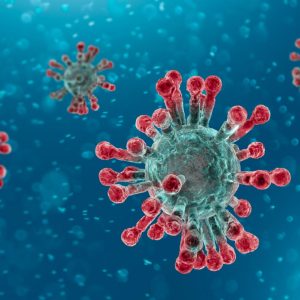hese are the most turbulent times in any of our memories. Some of us remember all the way back to the 70s when we were marching in the streets demanding the end to wars and the launch of clean air and water standards. (OK Boomer!) Some of us came of age when the markets crashed and the global economy burned in 2008. Some of us have been deployed into unknown dangerous territories.
But this feels worse. Day by day, terrible uncertainty and fear grow as the Coronavirus spreads and takes its toll. At ANCA we have rescheduled big events where people will gather, until testing is widely available to anyone who needs it, and the country starts to understand and respond appropriately to the scope and impact of this thing. That is tough. It takes nearly as much time to unravel an event as it does to put it together. 
We are also putting into practice the behaviors that can help protect us — hand washing for 20 seconds, use of hand sanitizers, no shaking of hands or giving hugs. We remind each other. At a one-hour meeting in the office recently, a staff member counted that the six people in the meeting touched their faces 281 times. It’s hard to change decades of habits. We need to help each other. We have put into place contingency plans for working from home. Preparing for dealing with uncertainty seems to lower anxiety.
But this is what we are really thinking hard about. How do we minimize the negative impact on the local businesses and communities that benefit from our events and the small businesses that need help in building markets? Our mission is to build prosperity across northern New York by keeping wealth and value in local communities. If everyone cancels all events and hunkers down, how will our local businesses thrive or even survive?
So here are some thoughts, and we’d love to hear yours:
Please try to buy from local businesses as much as possible rather than defaulting to Amazon delivery for everything. Habits are hard to change, but please think about your purchasing decisions and how they might impact your community. Carpe Insecte, a local manufacturer that produces natural insect repellents, is now making hand sanitizer right here in Saranac Lake. The company’s new product will be helping Franklin County emergency personnel stay safe while hand sanitizer supplies are becoming scarce throughout the country.
With restaurants and other businesses required by the State to temporarily close their doors, consider ways you can support them during their closure. Are there local restaurants that will deliver food or provide take out for you to pick up? We love what the St. Lawrence County Chamber of Commerce is doing to share take-out menus from local restaurants on their website. You can also purchase gift certificates from restaurants, movie theaters, gyms and other local businesses — for future use or for gifts for others. Your local farmers really need your help. If you buy at a local farmers market, and markets are being canceled, call your local farms to see how you can still purchase food from them.
Can you visit a local bookstore to pick out some good reading for long quiet evenings? Are there community-owned stores that supply some of the things you need?
Are your neighbors OK? Can you set up a communication system in case community members get sick and need help, or delivery of food, or help getting medical support? There are some great models out there. Next Door is an app that Keene residents use to keep each other posted. Facebook also provides a good platform for community support groups. Vermont has a great system for local communities — a list compiled by community organizers to share with others who are physically and emotionally available for mutual aid work around COVID-19 at the local level. Local residents are invited to get involved by completing a mutual aid volunteer form.
In addition to having your own pantry well-stocked with non-perishables, consider how you can support local food pantries. These services are becoming even more important as schools have closed and families require more food items at home. Regional food pantries report that they need tuna, canned meat, peanut butter, beans and lentils, pasta, sauce, cereals and oatmeal, toilet paper, baby food, canned fruit and vegetables, feminine hygiene products. If you can afford to give, please consider adding these items to your shopping list to drop in the food pantry collection boxes at grocery stores.
In these times when we can’t even give each other hugs or handshakes, we need connection more than ever. And we need to know that our communities and the small businesses that keep them vital remain strong and connected.
The New York Times posted a beautiful opinion piece about the Corona crisis. “Disaster affects everyone, and peels us away from “mundane matters” to the “very issue of human life itself.”
When “danger, loss and suffering become a public phenomenon,” they went on, “all those who share in the experience are brought together in a very powerful psychological sense.”
An unrelenting immediacy sets in: “Worries about the past and the future are unrealistic when judged against the realities of the moment,” the sociologists wrote, and distinctions between people fall away, leaving only “human beings responding to one another as human beings.”
Thrown all together, in one unrelenting present, we are made to recognize in one another what we deny most vehemently about ourselves: “In the end, it’s our vulnerability that connects us.”
We ask this from you: please send us ONE idea that can help you as a small business owner, or a community member, that will keep us all safe while continuing to support our local communities and small businesses during this difficult time.
And please send us stories of how local businesses, organizations and community members are stepping up to this challenge. We want to help share positive stories of how you all are supporting each other and strengthening your local communities during this global crisis.
Send your ideas and stories to us at [email protected].
From all of us at ANCA, stay safe and take care.

Illustration by Nancy Bernstein: www.nancybernsteinillustration.com
